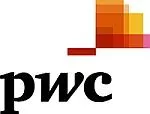Introduction
PwC Nigeria's analysis of developments in the Nigeria oil & gas industry draws upon the valuable experience and views of industry players including Independents and International oil companies operating in the country with the view to providing insight into the latest developments in the industry and how they impacts their business.
This year's survey looked at key developments in the industry in the last 12 months and covered issues around the regulatory environment, security and pipeline vandalism as well as the appraisal of capital investment and how it impacts revenues and operational effectiveness. The survey was conducted using structured questionnaires administered to Finance Directors of the surveyed oil companies and compiled by the PwC Nigeria Oil & Gas team.
Key Findings
Petroleum Industry Bill
On the regulatory environment, there is no consensus among operators on the impact the draft Petroleum Industry Bill (PIB) - which proposes changes to the tax regime, royalty structure and onshore operations - will have on their business. While international oil companies with deep water assets are more concerned about the regulatory and fiscal provisions, others with more significant onshore assets believe the law will have adverse effect on current and future earnings as a result of reduced incentives, higher taxes and community development levies. There are some nonfiscal issues that have been identified by the operators that require more attention from the lawmakers to ensure the viability of the industry. These include the terms of the licenses and leases, provisions relating to the incorporated joint venture arrangements, discretionary powers of the minister of petroleum resources, dispute resolution framework, measurement point, domestic gas supply obligations and the roles of the National Oil Company. In general, there is a call that the version eventually passed into law is balanced and fair to all stakeholders. It is not expected that the PIB will be passed into law before the expiration of the term of the current National Assembly in May 2015.
Local Content and Human Capital Deficit
Local content has become a significant issue for the oil & gas industry, especially across Africa. Given the drive by governments to enable locals play more significant roles within the energy sector, we would expect increased pressure on operators to justify the utilisation of 'non' local resources.
Nigeria has recorded some measure of success in this light. A report by the Nigerian Content Development and Monitoring Board, an enforcement and Implementation body for the local content law states that engineering in the oil & gas industry is now done 90% in country, fabrication of all the field development facilities now has 50 per cent of the tonnage done in Nigeria. There is however scope for improvement in manufacturing which is where the knowledge and technology resides.
There are also concerns about the implementation of the requirements of the Nigerian Oil and Gas Industry Content Development Act NOGICDA on asset ownership for subsidiaries of non-resident companies and other indigenous companies. It does not seem that there is funding capacity in the industry to drive the acquisition of some of the extremely expensive equipment in use in the Industry.
The quality of projects executed by local service contractors in line with provisions of the (NOGICDA) does not raise major concern among operators. There appears to be a general consensus on the need to increase in-country capacity notwithstanding the higher cost associated with locally executed projects. There are however concerns about human capital deficit due to non-availability of world class manpower locally. Operators hope to overcome this through continuous investment in attracting, retaining and training the right people as well as long term commitment in building local capacity in key technical skills through support extended to relevant educational establishments.
Security, Oil theft and Pipeline Vandalism
Security issues, sabotage and crude oil theft continue to present significant challenges in the industry, and adversely impacting on onshore oil and gas production as well as the challenge to deliver same to market. The situation however appears to have improved in the last 12 months and impact on production is expected to be minimal. The companies also continue to create awareness about the negative impact of vandalism, crude theft and illegal refining and are working closely with government security agencies to police Right of Way in addition to engaging community surveillance teams.
IOC Divestments in Nigeria
It is estimated that by the end of 2015, the International Oil Companies operating in Nigeria will have sold at least 250,000 barrels per day worth of equity in onshore and shallow water producing assets in the oil producing Niger Delta region.
These divestments represent the single largest opportunity for indigenous companies to participate in the upstream oil and gas industry. The transfer of operatorship to the buyers of these assets will go a long way in demonstrating government's commitment to the local content policy. This will in turn unlock enormous local contractor, financing and other opportunities.
Public scrutiny and regulatory compliance in the post-BP-Deepwater Horizon environment
Growing regulatory compliance requirements in many developing countries post the April 2010 Deepwater Horizon disaster in the Gulf of Mexico, is forcing companies to recognise Security, Health, Environment and Quality (SHEQ) as a serious area of business focus or face the consequences of non-compliance by way of significant fines and penalties. Multinational oil companies are also driving SHEQ requirements within their own companies as they require their business units around the world to implement their stringent policies no matter where they operate.
The oil companies operating in Nigeria are well aware of the requirement to develop formal health and safety measures for any major oil & gas facility and are striving to maintain strict adherence to quality standards in line with global best practice. There is also a focus on continual strengthening of safety culture among employees and contractors.
Fraud and Corruption
Fraud and corruption ranked high as an impediment to companies achieving operational excellence. The perception of the oil & gas industry is that it is one of the sectors where companies are more likely to be confronted with corrupt activities.
Some of the reasons given for engaging in questionable practices is to bypass customs bureaucracy inefficiencies and the related cost of delays to companies. Others include mismanagement, lack of skills, dealing with public institutions, government employees who are often poorly paid, difficulty with monitoring in remote locations, huge tender and bid profit possibilities and supplier kickbacks.
A positive sign is that some respondents indicated that they are prioritising and spending money on prevention of fraud and corruption with more on ethics and business conduct training and senior management locally and globally encouraging companies to be legally compliant in all countries where they operate.
Capital Investments and Investment Appraisal
Capital overruns do not appear to be a major challenge as the oil companies have implemented advance planning and robust capital budgeting process to avoid it. However, overruns on large capital projects are due to the nature of the projects, but this is being closely monitored and controlled.
There have been delays in some major investment decisions within the industry as a result of the uncertainty with the contents of the PIB that will be eventually passed and the impact that the provisions may have on these decisions.
Revenue Growth and Operational effectiveness
Despite current decline in oil prices, operators are positive about revenue growth over the next 3 years. It is expected that the industry will continue to be profitable based on an average bench mark oil price of $85-$90 per barrel. In addition, operators are implementing cost reduction strategies and focusing on operational excellence and innovation as a way of increasing their profitability despite declining revenue. Furthermore, it is not expected that the status of the United States as net exporter of crude oil will have any significant effect on the profitability of oil companies operating on the continent.
Gas Utilisation
Gas flaring is also expected to continue to be a challenge. However, there has been some improvement with some their facilities by about 75% between 2003 and 2012 and flaring intensity by around 60% over the same period. Also, some Gas to liquid projects that are coming on stream are expected to make positive impact as regards flared volume. There is a need however, for increased investment in gas utilisation and the creation of a viable market for gas. The government is expected to take the lead on this.
National Oil Company-International Oil Companies Partnership
The primary concern of operators is centered around significant cuts to the budget and delay in budget approval. There is also the consequent challenge of alternative funding.
Operational Excellence
Government interference is the factor respondents believe most severely hinders their companies' attainment of operational excellence. Indeed, it has been identified as the single most important reason for underperformance. Besides government interference, other issues identified that severely hamper operational excellence relate to factors that are also not in their control such as lack of infrastructure, fraud and corruption and regulatory compliance. Local content regulation ranked seventh. The other factors identified all relate to internal organisational development areas, which all companies can continually strive to improve upon. The most prominent of these were inadequate planning, lack of skills, lack of project governance and the disconnect between operational activities and business strategies.
Conclusion
The outlook for the industry is positive and operators can look forward to an exciting and dynamic future with an ever-changing competitive landscape characterized by divestments and new acquisitions as new market entrants continue to seek a share of the industry's significant growth potential.
The onus however sits with governments to ensure that they continue to provide acceptable regulatory environments with attractive fiscal systems. The main difficulty that investors have is the risk associated with uncertainty. Should uncertain regulations persist especially surrounding the passage of the PIB, the country might become less attractive to new investments which is considered very important in increasing the country's revenue.
The content of this article is intended to provide a general guide to the subject matter. Specialist advice should be sought about your specific circumstances.

